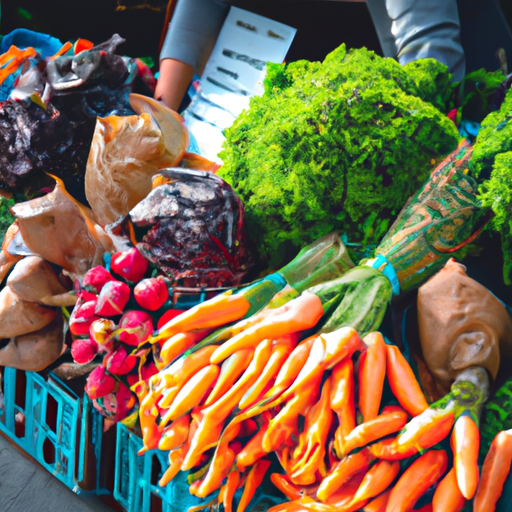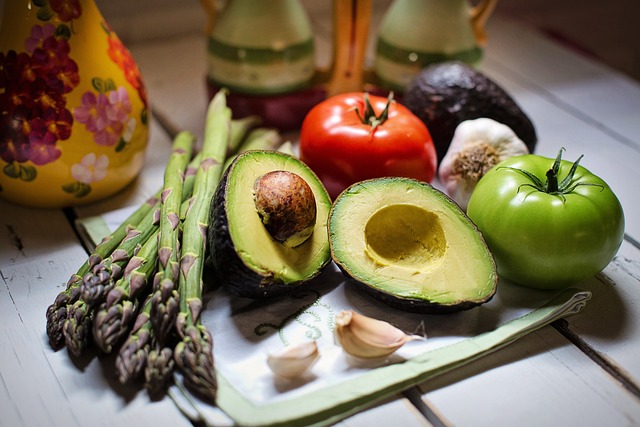So, you’ve been hearing a lot about vegetarian diets lately and you’re curious to know if all vegetarian foods are actually healthy. Well, I can understand why you would wonder. After all, just because something is vegetarian doesn’t automatically mean it’s good for you, right? Don’t worry, I’ve got the answers you’re looking for. In this article, we’re going to dive into the world of vegetarian foods and find out if they are indeed as healthy as they seem.
Now, let’s get one thing straight – being vegetarian doesn’t mean you’re automatically eating a plate full of salads and veggies all day long. Vegetarianism is simply a dietary choice that excludes meat and animal products. So, there is a wide variety of foods that fall into the vegetarian category, ranging from fruits and vegetables to grains, legumes, and dairy products. Some vegetarian foods are indeed very healthy, packed with essential nutrients, while others may not be as nutritious and could even be high in unhealthy fats or sugar.
In our upcoming article, we’ll explore different types of vegetarian diets, such as lacto-vegetarian, ovo-vegetarian, and vegan, and examine the nutritional benefits and potential pitfalls of each. We’ll discuss the importance of including a variety of nutrient-dense vegetarian foods in your diet and provide practical tips to ensure you’re meeting your nutritional needs. So, stay tuned for more information and let’s find out if all vegetarian foods really are healthy!
Overview of Vegetarianism
Definition of vegetarianism
Vegetarianism is a dietary practice that involves abstaining from the consumption of meat, poultry, and seafood. Vegetarians primarily rely on plant-based foods for their nutritional needs, including fruits, vegetables, grains, legumes, nuts, and seeds. There are various types of vegetarian diets, each with its own set of restrictions and allowances.
Different types of vegetarian diets
- Lacto-ovo vegetarian: This is the most common type of vegetarian diet, which excludes meat, poultry, and seafood but includes dairy products and eggs.
- Lacto-vegetarian: This diet excludes meat, poultry, seafood, and eggs but includes dairy products.
- Ovo-vegetarian: This diet excludes meat, poultry, seafood, and dairy products but includes eggs.
- Vegan: Vegans avoid all animal products, including meat, poultry, seafood, dairy, eggs, and even honey.
- Pescatarian: Pescatarians follow a vegetarian diet but also include fish and other seafood in their meals.
Reasons for choosing a vegetarian diet
People choose vegetarian diets for various reasons. Some embrace vegetarianism due to ethical concerns about animal welfare or environmental sustainability. Others adopt vegetarian diets for health reasons, aiming to lower their risk of chronic diseases such as heart disease, diabetes, and certain types of cancer. Additionally, some individuals choose vegetarianism as part of a weight management or weight loss strategy.
Nutritional Considerations
Importance of balanced nutrition
Regardless of dietary choices, balanced nutrition is essential for overall health and well-being. A well-planned vegetarian diet can provide all the necessary nutrients, but it requires careful attention to ensure adequate intake of all essential components.
Key nutrients in a vegetarian diet
Vegetarian diets should focus on incorporating key nutrients such as protein, iron, zinc, calcium, vitamin B12, omega-3 fatty acids, and vitamin D. Plant-based sources like legumes, tofu, tempeh, nuts, and seeds are excellent protein alternatives. Iron can be obtained from sources such as leafy greens, beans, and fortified cereals. Calcium can be found in dairy products or fortified plant-based milks, while vitamin B12 can be obtained from fortified foods or supplements. Omega-3 fatty acids can be found in sources like chia seeds, flaxseeds, and walnuts. Vitamin D can be synthesized by the skin when exposed to sunlight or obtained through fortified foods or supplements.
Potential deficiencies in vegetarian diets
While a well-planned vegetarian diet can provide all necessary nutrients, certain deficiencies can occur if not carefully managed. Vitamin B12, for example, is primarily found in animal-based foods, so individuals following a vegan diet must pay close attention to their intake and consider supplementation. Iron absorption from plant-based sources is less efficient compared to animal-based sources, so vegetarians should pair iron-rich foods with vitamin C-rich foods to enhance absorption. It is also important for vegetarians to ensure adequate calcium intake, as plant-based calcium sources may have lower bioavailability compared to dairy products.
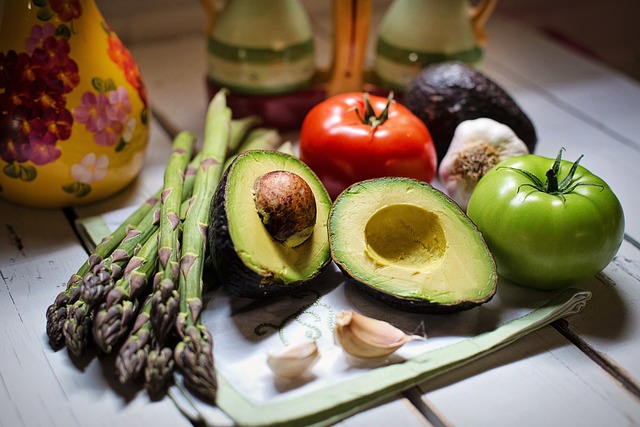
Benefits of a Vegetarian Diet
Reduced risk of chronic diseases
Numerous studies have indicated that a well-planned vegetarian diet can help lower the risk of chronic diseases. This is primarily due to the higher consumption of fruits, vegetables, whole grains, legumes, and nuts, which are rich in essential nutrients, antioxidants, and fiber. Vegetarians tend to have lower blood pressure, cholesterol levels, and body mass indexes (BMIs), contributing to a decreased risk of heart disease, hypertension, and obesity. Additionally, vegetarian diets have been linked to a reduced risk of type 2 diabetes and certain types of cancer, such as colon, breast, and prostate cancer.
Weight management and weight loss
Many individuals choose vegetarian diets as a means of managing or losing weight. Plant-based diets tend to be lower in calorie density, meaning you can eat larger volumes of food while consuming fewer calories. This can help create a calorie deficit, leading to weight loss. Additionally, the high fiber content in vegetarian foods promotes satiety, reducing the likelihood of overeating. However, it is important to note that not all vegetarian foods are inherently low in calories or healthy, as highly processed vegetarian options can still be high in fat, sugar, and calories.
Environmental sustainability
Choosing a vegetarian diet can have positive impacts on the environment. Animal agriculture is a major contributor to climate change, deforestation, and water pollution. By reducing or eliminating the consumption of animal products, individuals can help decrease greenhouse gas emissions and conserve natural resources. Plant-based foods require less land, water, and energy to produce, making vegetarian diets more environmentally sustainable.
Healthy Vegetarian Food Choices
Whole grains and cereals
Whole grains and cereals are important staples in a vegetarian diet, providing essential carbohydrates, fiber, and various nutrients. Opt for whole wheat bread, brown rice, quinoa, oats, and whole grain pastas to enhance nutrient intake and promote satiety.
Legumes and beans
Legumes and beans are excellent sources of plant-based protein, fiber, iron, and other essential nutrients. Incorporate foods like lentils, chickpeas, black beans, and tofu into your meals to increase the nutritional value and flavor of your vegetarian dishes.
Fresh fruits and vegetables
Fresh fruits and vegetables are essential for a well-rounded vegetarian diet. They are packed with essential vitamins, minerals, antioxidants, and fiber. Aim for a variety of colorful produce to ensure you’re obtaining a broad range of nutrients.
Nuts and seeds
Nuts and seeds are rich in healthy fats, protein, fiber, vitamins, and minerals. Almonds, walnuts, flaxseeds, chia seeds, and pumpkin seeds are great options to incorporate into your diet.
Plant-based protein sources
For individuals who choose vegetarian diets, it is essential to include adequate protein sources. Aside from legumes and beans, other plant-based protein sources include soy products, seitan, tempeh, and plant-based protein powders.

Processed Vegetarian Foods
Definition and examples of processed vegetarian foods
Processed vegetarian foods refer to products that have undergone manufacturing processes to alter their natural state. While some processed vegetarian foods can be healthy and convenient options, others can be less nutritious due to added sugars, unhealthy fats, and artificial additives. Examples of processed vegetarian foods include veggie burgers, frozen vegetarian meals, meat substitutes, packaged snacks, and desserts marketed as vegetarian or vegan.
Potential health risks associated with processed foods
It is important to be cautious with processed vegetarian foods, as some can be high in sodium, unhealthy fats, and added sugars. These can negatively impact cardiovascular health, blood sugar levels, and overall well-being. While they may be suitable for occasional consumption, a predominantly whole foods-based vegetarian diet is generally recommended for optimal health.
Vegetarianism and Weight Management
Factors influencing weight gain or loss on a vegetarian diet
Weight gain or loss on a vegetarian diet is influenced by various factors, including calorie intake, portion sizes, food choices, and overall dietary patterns. While vegetarian diets can aid weight management, it is still crucial to consume a balanced and calorie-controlled diet.
Strategies for healthy weight management as a vegetarian
To manage weight effectively as a vegetarian, focus on whole, minimally processed foods and practice portion control. Incorporate a variety of fruits, vegetables, whole grains, legumes, and plant-based protein sources into your meals. Be mindful of your intake of high-calorie processed vegetarian foods and ensure you’re not exceeding your daily calorie needs.
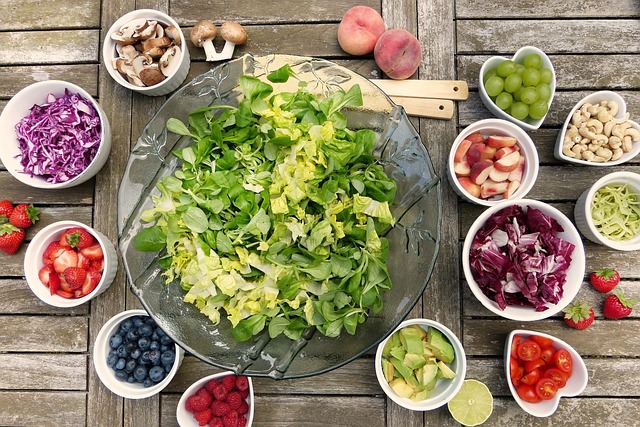
Common Misconceptions about Vegetarianism
Lack of protein in vegetarian diets
One common misconception about vegetarian diets is that they are lacking in protein. However, with proper planning and food choices, vegetarians can easily meet their protein needs. Legumes, tofu, tempeh, seitan, dairy products, eggs, and plant-based protein powders are rich sources of protein that can be included in a vegetarian diet.
Perception of vegetarianism as a restrictive diet
Another misconception is that vegetarianism is a restrictive diet. While it does involve excluding certain food groups such as meat and seafood, a well-planned vegetarian diet can be diverse, flavorful, and nutritionally balanced. There is a wide range of vegetarian-friendly foods available, allowing for creativity and variety in meal preparation.
Balancing Macronutrients in a Vegetarian Diet
Importance of balancing carbohydrates, proteins, and fats
Balancing macronutrients, including carbohydrates, proteins, and fats, is crucial for a well-rounded vegetarian diet. Each macronutrient plays a specific role in energy production, cellular function, and overall health.
Sources of each macronutrient in a vegetarian diet
- Carbohydrates: Whole grains, legumes, fruits, and vegetables are excellent sources of complex carbohydrates, providing sustained energy and essential nutrients.
- Proteins: Legumes, tofu, tempeh, seitan, dairy products, eggs, and plant-based protein powders are valuable sources of protein in a vegetarian diet.
- Fats: Nuts, seeds, avocado, olive oil, and coconut oil are healthy sources of unsaturated fats, which support proper brain function, hormone production, and nutrient absorption.
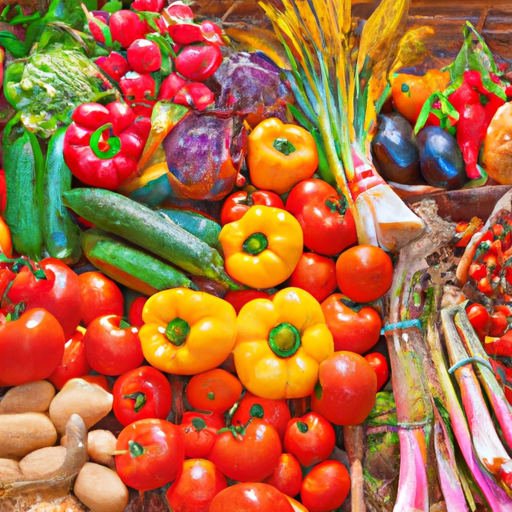
Special Considerations for Vegetarian Diets
Vegetarianism during pregnancy and lactation
Vegetarian diets can be safe and healthy during pregnancy and lactation with proper planning and monitoring. It is crucial to ensure adequate intake of essential nutrients such as iron, calcium, vitamin B12, and omega-3 fatty acids. Consultation with a healthcare professional or registered dietitian is recommended to ensure all nutritional needs are met.
Vegetarian diets for athletes and active individuals
Athletes and physically active individuals can thrive on vegetarian diets, as long as they meet their increased energy and nutrient requirements. Careful attention should be given to protein intake, ensuring a sufficient amount is consumed to support muscle repair and recovery.
Coping with social challenges of being a vegetarian
Being a vegetarian can sometimes be challenging in social settings where meat or animal-based products are the norm. It is important to communicate your dietary preferences to friends, family, and event organizers in advance. Additionally, offering to bring vegetarian options to gatherings can help ensure you have suitable food choices.
Conclusion
In conclusion, not all vegetarian foods are automatically healthy. While vegetarianism can offer numerous health benefits and contribute to a more sustainable planet, it is important to focus on whole, minimally processed foods and pay attention to nutrient balance. By incorporating a variety of fruits, vegetables, whole grains, legumes, nuts, and seeds into your diet, you can enjoy a nutritious and satisfying vegetarian lifestyle. Stay informed and make conscious choices to ensure that your vegetarian diet supports your overall health and well-being.
